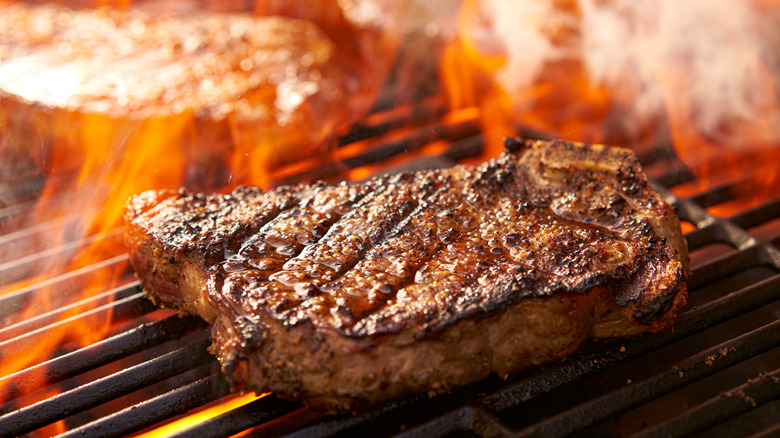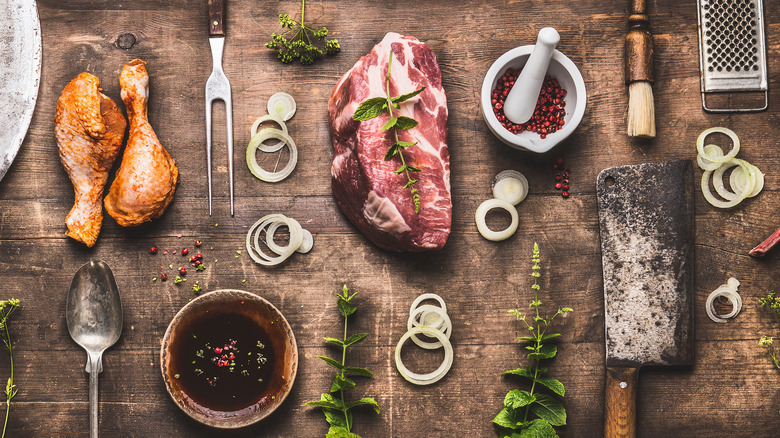The Real Reason Your Meat Becomes Tough When Grilling
Nothing says backyard party foul more than when meat off the grill comes out tough and chewy, forcing guests to politely nibble on bites of brick-like chicken or beef. Talk about giving the jaw a workout! Unfortunately, a chef told Food & Wine tough meat at these summertime affairs happens more frequently than you might think. So, how can you mitigate the risks of serving up less than juicy, mouthwatering meat — whether it's filet mignon, chuck steak, chicken, or pork? Luckily, there are several methods to help reduce this grilling faux pas.
Per Science of Cooking, the biggest factors that determine a piece of meat's potential toughness begin with the cut and ends with how long you cook the meat. They explain that tougher pieces of meat are going to be those where the muscle was used more by the animal. But they also note that factors like how old the animal was before it was slaughtered, and the fat and connective tissue content also play a role. That is why the initial step begins when prepping your meat for the grill.
Taste of Home shares that the first step to making a perfectly tender piece of meat is tenderizing it. This simply means breaking out your mallet and lightly pounding the meat. This process helps break apart muscle fibers. Eating Well reminds us that cube steak is super tender, but only because it received a good beating to make it that way. So, don't skip tenderizing.
Meat must be cooked to the right length of time
Taste of Home also suggests using a marinade to help with those tougher cuts of meat. Marinades don't simply make food flavorful, they also work to "break down proteins," which ultimately helps make your meat tender. However, they caution not to over-marinade or you will end up with a mushy mess. If marinades are not your thing, you can simply season your meat with salt. According to Fine Cooking, salt changes the "water-holding capacity" of a piece of meat by 10% and can reduce loss of moisture by almost half. Taste of Home notes that you know you've salted properly when the meat becomes a deeper shade of red.
But, as Ray Lampe, aka Dr. BBQ, points out to Food and Wine, "No matter what you buy, you must cook it to the proper degree of 'doneness' or it will be tough. No marinade will help you if you overcook the food." Taste of Home shares that this is why low and slow is key with those less expensive, tougher meat cuts. This method also helps break down those connective tissues that would otherwise lead to a dry end product when not cooked properly. But also beware of not cooking your meat long enough. Undercooked meat is going to be chewy. Lampe explains that this is why using a food thermometer is important. Otherwise, you will be left guessing.

